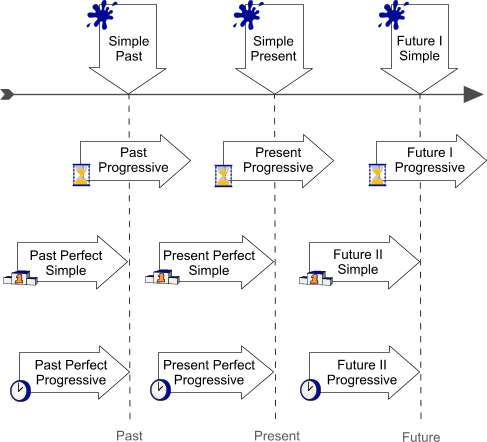I saw this on infinity for Reddit earlier, I don’t know if there’s a workaround for this or not.
the new google massive surveillance apparatus is ready to be deployed
They talk as if they’re protecting our privacy when it’s really a global surveillance net. The spin doctoring is insane.
Bruh, so when android phones are turned off they’ll still waste energy locating people and sharing the location. And most phones don’t have a removable battery! Fucking nuts.
Didn’t iPhone been doing it for years so you can still track your lost phone even if it’s turned off?
But this is Android, I’m sure there’ll be work around if you don’t want it. Personally I think it could be helpful.
Didn’t iPhone been doing it for years
You’re trying to describe an action that has started in the past and is still taking place. “Didn’t” is simple past which indicates a concluded action. The correct tense you’d want to use here is present perfect progressive --> “Hasn’t iPhone been doing it for years”.
Edit: Although, I missed the “been” in your sentence, so you just picked the wrong verb. Not too far off 👍
I have some more questions, teacher
If I lived in a country for some years/time, how do I say that?
Also, if I worked as somebody?
And in general, difference between have been and had been?
Thank you
And in general, difference between have been and had been?
I’ll answer this because the two previous questions depend on what you want to express. Just a note before-hand, the best site for English grammar I know is ego4u.
First the quick answer:
- have been --> present perfect progressive: an action that took place in the past and continued until recently or is still continuing
- had been --> [past perfect progressive]: an action that started in the past and continued until some point in time in the past
Longer answer:
Conceptually, there are a limited number of possible tenses. Here is a picture from ego4u

Let’s say you want to tell a story. There are the static states you can describe
- Something is in a certain state right now e.g the person is alive, the table is on the second floor, life is great --> that’s the simple present
- In the past something happened and the action was completed e.g I stood there, the pool was filled, the plane got loud --> that’s the simple past
- A thing is in the future or there is an intent to do something in the future e.g we will be there, the train will be on time, they are going to have a party in the hotel --> simple future. Notice the use of will and going to. Those are two ways to express the simple future.
So, now that we’ve expressed a state, something that is unchanging, we would like to describe changing actions are particular strips in time:
- Actions that are currently taking place and ongoing e.g the person is living, the table is standing on the second floor, life is going great --> present progressive. Notice the difference from simple present above. The action is ongoing.
- A thing that’s going on in the past: I was standing there, the pool was being filled, the plane was getting loud --> past progressive. Again, compare with simple past from above
- Something in the future is changing: we will be standing there, the train will be waiting on time, they are going to be partying in the hotel --> future progressive
Alright, we have expressed points in time both static and changing, but what about actions that happen just before those points in time? They concluded or may be still happening. We call those “perfect” tenses.
- the person has lived here for ages, the table has stood on the second floor, life has been great --> present perfect
- I had stood there, the pool had been filled, the plane had gotten loud --> past perfect aka something that happened before a thing in the past
- we will have stood there, the train will have waited on time, they will have partied in the hotel --> future perfect = an future past action or action that will be the past in the future
And finally, if we look at the diagram we see one last group of progressives - perfect progressive. Remember, progressive describe something that’s still ongoing at the point in time. You may ask why they are needed when the “perfect” overlaps with the progressive - something that started before a point in time and continues to happen.
Well, that difference might be lost with time as they tend to become less and less important. A grammar purist might disagree but in colloquial English, my experience shows less and less people can tell the difference and I do have to look it up:The difference between “perfect” and “perfect progressive” is the focus of the tense. “Perfect” makes the result important and “perfect progressive” makes the duration or fluidity / continuity of the action important. I invite you to read this page on Present Perfect Simple vs Present Perfect Progressive. It explains it quite well.
Hopefully that will help you answer your two first questions.
I love you for being so human
Just a random person on the internet asked you to explain something, and you did, you’re so cool
Thank you for the explanation, I will really remember and keep it for my whole life
❤️🩹
(No sarcasm, really, people these days are so mean and tell you to look everything up yourself, or just get angry because you ask or don’t know. Even though you could just copy and paste, this is a human interaction. Really happy to see somebody’s still alive)
Hey, I’m glad the effort was appreciated 😇 Have yourself a great day!
I’m sure there’ll be work around if you don’t want it.
Take the battery out of the phone. No battery no energy to run bluetooth
phone batteries used to be removable on the user level. hasn’t been that way in like 10 years.
Fairphone?
Can someone explain where the code for this will be located (aosp, gsf)? How can I make sure that it will never ever be activated? What Graphene’s response? etc
it looks like its going to be a hardware feature. if the main CPU is off, it implies the radio circuitry and its CPU (the BBM) are still powered. give google this at least, the special new Bluetooth API will be accessible to whatever OS is alive and awake to send commands (even if I don’t trust that “off” means “off”). the fact that its using encryption (that’s too complicated to be made out of Integrated Circut logic) means its likely another software feature added to the BBM co-processor (it handles all radio tasks on the phone). this all but confirms the BBM (at least going forward) will still get power, be awake and have access to the (transmit (TX) and reseave (RX) functions of the) radios even when everything else is properly off.
EDIT: or it could be an abuse of a generic BLE beacon mechanism that’s “just there for whatever the consumer would need it for”. but if they are doing proprietary encryption like they claim, that’s not really possible without updating the BBM’s software to add another feature.
We could wait for the implementation from the GrapheneOS team ! I’m pretty sure that they would implement it in a way that would be safe for the user.
If it’s hardware controlled, then the Graphene OS team would have to find a flaw in the hardware, or trust that when they tell the hardware to shut off, that it really does shut off, or find a way to verify that the hardware is really of. But even if they could tell the hardware to shut off, verify that it’s off, and then shut down, the hardware could turn back on after the software is off and the software would be none the wiser.
The only way 2 ways anybody can be relatively sure this feature is off are:
- pulling the battery:
- good luck with that with phones that don’t have removable batteries
- hopefully there won’t be a small backup battery to power this specific circuit
- physically disconnecting this circuit from other circuits:
- that might mean saying goodbye to bluetooth functionality on the phone
The alternative is getting a linux phone with hardware that doesn’t have this feature.
Fuck, okay, Linux on my phone now, because corporations just spray shit on everything
I hope linux phones will become more of a thing as they aren’t there yet IMO. But of course you can always get a second hand phone… forgot that option
- pulling the battery:




